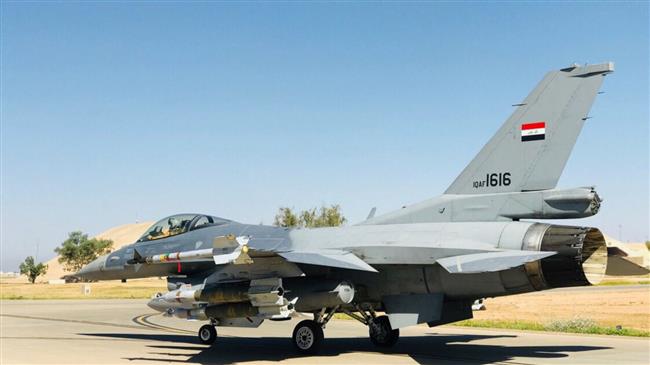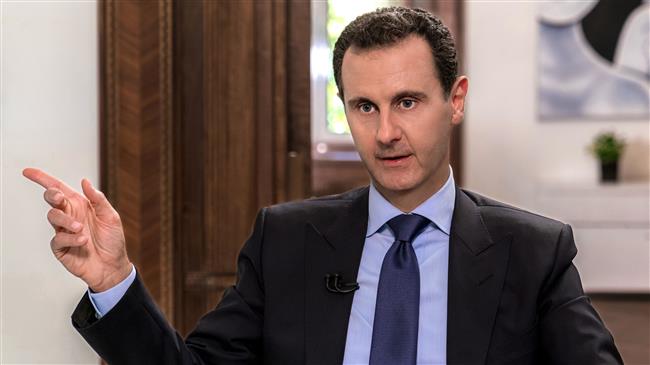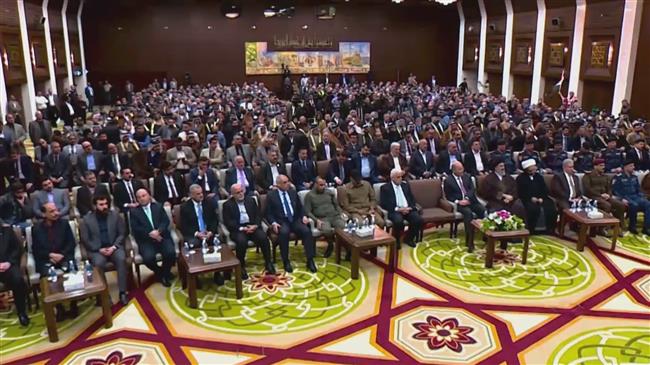27 Russian kids born to Daesh terrorists return home from Iraq
A Russian official says Moscow has repatriated a new group of children whose mothers are being held in Iraq over their membership in the Daesh Takfiri terrorist group and involvement in criminal acts in the country.
“Twenty-seven Russian children have been repatriated from Baghdad,” an unnamed Russian Foreign Ministry official said on Sunday.
The fathers of the children were killed during three years of fighting between the militants and Iraqi troops, the official said.
On December 30 last year, 30 Russian children born to Daesh terrorists were sent back to Moscow from Iraq.
Russian Human Rights Commissioner Tatyana Moskalkova said on December 4 that Moscow had received hundreds of requests from the widows of Daesh terrorists who were slain either in Iraq or Syria over the past few years, to return home.
Moskalkova said over 1,000 requests had been submitted to Russian authorities, adding that the women had “sustained an unimaginable violence.”
She further noted that the repatriation of the Daesh widows is a difficult process given the fact that they have been involved in acts of terror and their return could pose a threat to the safety of Russian citizens.
On April 29, 2018, the Central Criminal Court of Iraq, which is the country's flagship criminal justice institution, found 19 female Russian citizens guilty of “joining and supporting Daesh” and handed down life sentences to them.
The court issued the verdicts as the women, all accompanied by small children, attended the hearing.
Ziyad Sabsabi, a Russian senator and deputy chairman of the Senate's Foreign Relations Committee, had earlier warned that the Russian women would face death penalty, noting that most of them had denied their charges.
He pointed out that there were children, less than three years of age, who were kept in jail along with their mothers.
According to a report published by Iraq’s Arabic-language al-Mashriq newspaper, more than 1,500 women and children from the families of Daesh militants are currently being held in the Arab country, and the Baghdad government is coordinating with their respective countries to decide their fate.
Former Iraqi Prime Minister Haider al-Abadi declared the end of military operations against Daesh in the country on December 9, 2017.
On July 10 that year, he had formally declared victory over Daesh in Mosul, which served as the terrorists’ main urban stronghold in Iraq.
In the run-up to Mosul's liberation, Iraqi army soldiers and volunteer Hashd al-Sha’abi fighters had made sweeping gains against Daesh.
Iraqi forces took control of eastern Mosul in January 2017 after 100 days of fighting, and launched the battle in the west on February 19 last year.
Daesh began a terror campaign in Iraq in 2014, overrunning vast swathes in lightning attacks.
D-8’s role in Iran’s economy after Cairo summit
China slams US as ‘war-addicted’ threat to global security
China ‘firmly opposes’ US military aid to Taiwan
VIDEO | Press TV's News Headlines
President Yoon Suk Yeol to be removed from office
At least 19 Gazans killed by Israeli airstrikes since dawn: Medics
Leader: Iran neither has nor needs proxy forces
US fighter aircraft shot down ‘in friendly fire’ amid aggression on Yemen



















 This makes it easy to access the Press TV website
This makes it easy to access the Press TV website